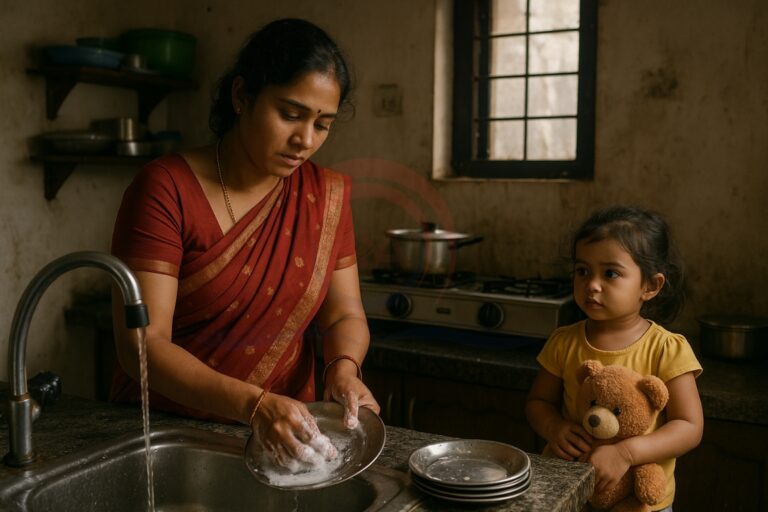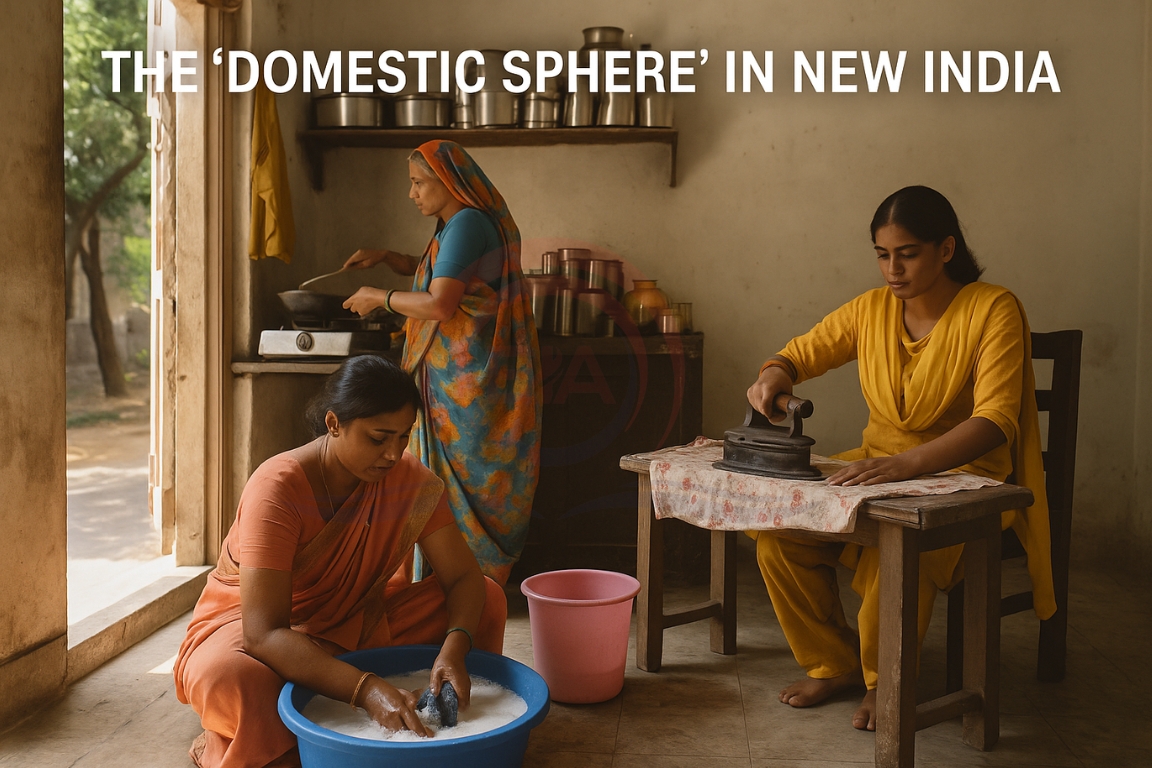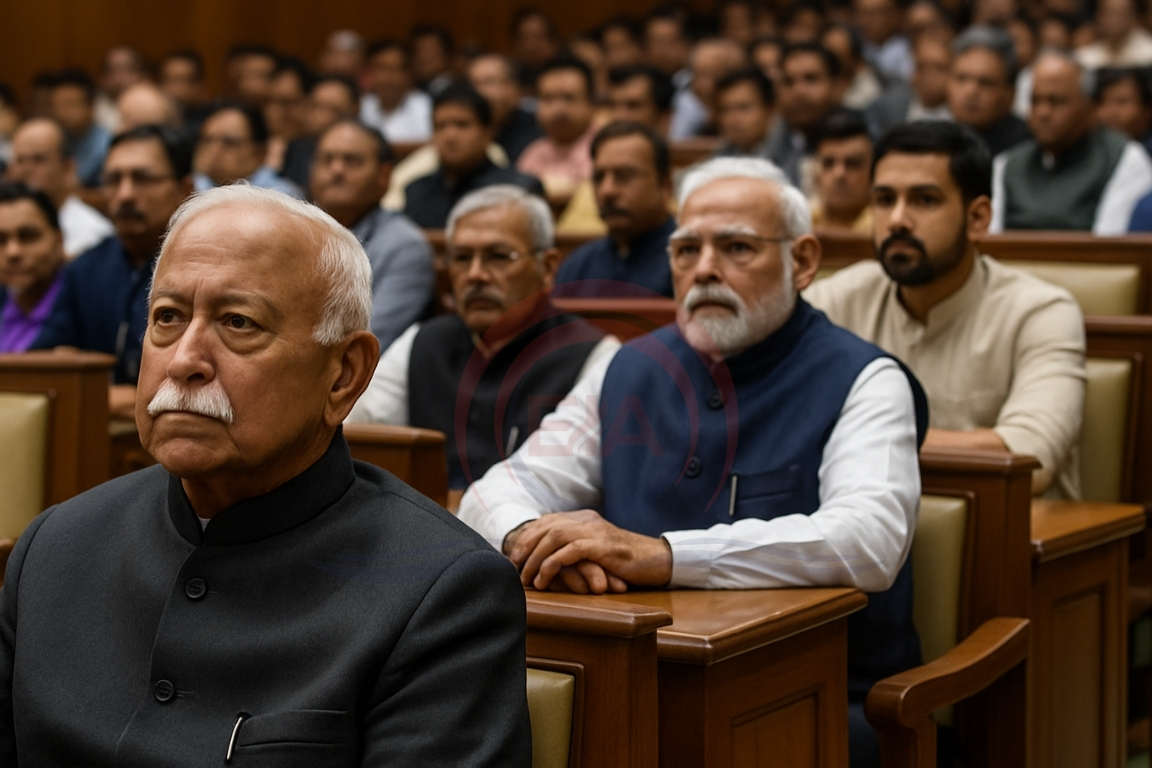The debate on women’s role in the domestic sphere resurfaced after the RSS chief’s August 2025 remark that families should have at least three children for “civilizational survival.”
Concerns in the Domestic Sphere
- Dowry deaths: Around 7,000 women die every year due to dowry-related violence (2017–2022), adding up to 35,000 deaths in five years.
- Domestic violence: NFHS-5 reports that 30% of women face partner violence, but only 14% file police complaints.
- Policy silence: Political leaders often avoid addressing violence within families, while focusing on issues like “love jihad.”

Historical and Cultural Barriers
- Hindutva ideology often promotes marriage as a sacrament, discouraging divorce or women leaving violent marriages.
- Resistance to reforms: Opposition to Ambedkar’s Hindu Code Bill reforms historically reflected these views.
- Current debates: Efforts to dilute domestic violence laws and resistance to criminalising marital rape are justified as protecting “Indian culture.”
Women’s Unpaid Work – Findings of TUS 2024
- Employment: Only 25% of women (15–59 yrs) engaged in employment, averaging 5 hours daily (compared to 75% of men, averaging 8 hours).
- Unpaid domestic work: 93% of women spend ~7 hours daily on household chores. 41% of women do 2.5 hours of unpaid caregiving.
- Men’s participation: 70% of men do no domestic work; those who do spend only ~1.5 hours. In caregiving, 79% of men contribute nothing; others spend ~1 hour.
- Result: Women’s total working hours exceed men’s, leaving them with less time for rest and leisure.
Policy Response and Undervaluation
- Government narratives glorify unequal burden as part of the “Indian social fabric.”
- Women in public services like anganwadi, mid-day meals, ASHAs are treated as volunteers, not workers, receiving honorariums instead of minimum wages.
- Economic undervaluation: SBI survey (2023) estimated women’s unpaid work at ₹22.5 lakh crore (~7% of GDP), yet it is excluded from wage calculations.
Way Forward
- Eliminate domestic violence through strong legal and cultural interventions.
- Recognise women as equal workers with fair wages and job security.
- State-provided universal care services for children and the elderly.
- Improve healthcare and education to reduce women’s unpaid care burden.
- Promote shared responsibilities within households instead of reinforcing traditional roles.
- Ensure justice for scheme workers by giving them minimum wages and government employee status.
Conclusion:
The struggles within the domestic sphere highlight how patriarchal norms, policy neglect, and undervaluation of women’s work undermine gender equality. Addressing these concerns is essential for realising genuine women-led development in India.





